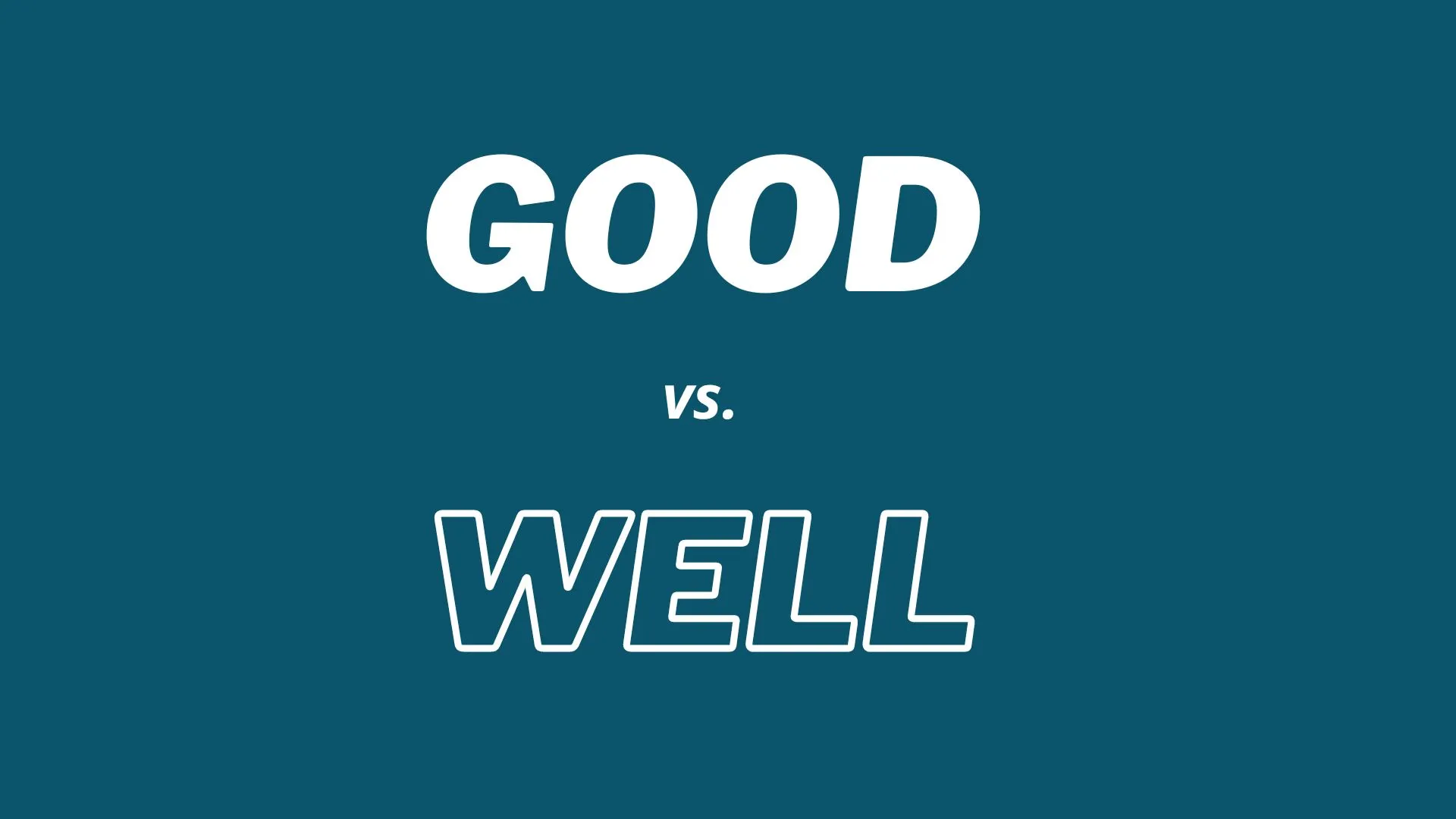

The English language is full of nuances and subtleties that can be difficult to master. Knowing the difference between “good” and “well” is one of the most common sources of confusion for English learners. This article will explore the difference between these two words and provide tips for mastering them.
The difference between “good” and “well” can be confusing, even to native English speakers. The key difference is that good is an adjective, while well is an adverb. This means that good is used to describe a noun, while well is used to describe a verb.
For example, let's say you want to describe a meal you had. You could say, "The meal was good." In this sentence, “good” describes the meal, which is a noun. On the other hand, let's say you want to explain how you felt after eating the meal. You could say, "I ate the meal well." Here, “well” describes the verb "ate," which is an action.
The distinction between “good” and “well” dates back to Old English, where the words had different meanings. In Old English, “good” was used to describe something morally right or desirable, while “well” was used to describe something physically or mentally healthy.
Over time, the meanings of “good” and “well” evolved to become more closely associated with each other. Today, the distinction between “good” and “well” is primarily based on whether the word describes a noun or a verb.
Now that we know the difference between “good” and “well,” let's look at how to use them correctly. As mentioned earlier, “good” is used to describe a noun, while “well” is used to describe a verb.
For example, let's say you want to describe someone's performance in a race. You could say, "She ran the race good." This sentence is incorrect, as “good” is not an adverb. The correct way to say this would be, "She ran the race well." Here, “well” correctly describes the verb "ran," which is an action.
Now that we understand the difference between “good” and “well,” let's look at some examples of these words in sentences. Here are a few examples of “good” used to describe a noun:
And here are some examples of “well” used to describe a verb:
Remembering the difference between “good” and “well” can be tricky, but a few tips can help. One tip is to think of “good” as an adjective and “well” as an adverb. This will remind you that “good” is used to describe a noun, while “well” is used to describe a verb.
Another helpful tip is to think of the words "good" and "well" as opposites. For example, if something is good, it is desirable. But if something is not good, it is undesirable. On the other hand, if something is well, it is done correctly. But if something is not well, it is done improperly.
Most dictionaries will list “good” as an adjective and “well” as an adverb. This is because “good” is used to describe a noun, while “well” is used to describe a verb. The dictionary will also list the different meanings of “good” and “well,” so you can see how the words are used in different contexts.
“Good” and “well” are not the only words that follow this rule. In fact, there are many other words that follow the same pattern. For example, “bad” is an adjective, and “badly” is an adverb.
The distinction between good and well is not unique to English. In fact, many other languages make a similar distinction between two words with similar meanings. For example, in Spanish, the words “bueno” and “bien” both mean "good," but “Bueno” is an adjective, while “bien” is an adverb.
The difference between good and well can be confusing, but it's important to understand the distinction. “Good” is an adjective, while “well” is an adverb. This means that good is used to describe a noun, while well is used to describe a verb. With a bit of practice, you can master this important distinction and take your English to the next level.
Date: January 18th, 2023
 Rob
Rob